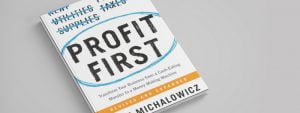Here are some essential EOFY tax tips for agencies. We have advice that will help get your tax affairs in order as the financial year ends.
Here are some essential tax tips for agencies. The financial year in Australia starts from July 1 and ends the following year on June 30 – with a lot to manage in between.
For many agency owners, the end of the fiscal year can be quite a stressful and frantic time. They have to scramble to organise last-minute purchases and get their documents in order. Also, they need to figure out what deductions are up for claiming & implement tax effective strategies for their situation.
1. Write Off Bad Debts
While writing off bad debts (huge debts you aren’t able to recover) may not seem like good news, there’s a positive side to it.
In fact, you can get a tax deduction on it and therefore minimise your tax liability altogether, as long as you can provide physical evidence of the write-off.
The debt must be added in your business’ assessable income (taxable income) in the present or preceding financial year. Thus, it’ll also be worthwhile to review your borrowers’ list.
If you happen to find any debtors whom you think won’t or may not be able to pay, then write off such debts before June 30. In doing so, you’ll be able to claim a deduction for the current financial year.
2. Claim Tax Deductions
You can claim most of the costs incurred through your career as deductions. However, making wrongful claims can lead to a penalty, according to the Australia Taxation Office.
As a small business owner, you need to ensure you’re claiming every possible and appropriate tax deductions. For example, items such as utilities or rent, repair costs, or even fees for professional, accounting, and legal advice.
For the latest tax deduction guidelines, you should always refer to ATO’s website before submitting any claims.
Tax agents also suggest organisations to include expenses like repair costs or pre-paying rent in the current financial year. However, you cannot claim these deductions if you fail to justify the expense or if it hasn’t been paid.
Assistant commissioner of ATO, Kathy Anderson has also made a warning regarding taxpayers trying to get standardized deductions just because they think they have an entitlement.
In a conversation with Fairfax, Anderson also remarked that most people believe they’re entitled to them even though they haven’t spent any money. She says that in order to claim these deductions, you need to spend the money and that it must be related to your earnings.
You must also be able to show the ATO how the claim has been calculated.
3. Make Use of Instant Asset Write-Off
For agencies that own any new or second-hand assets, the Australian Taxation Office (ATO)’s instant asset write-off enables small enterprises to claim immediate deductions for their asset purchases.
This plan will still be in effect until 30 June 2020, which should prove to be a much-welcomed move for small businesses.
The instant asset write-off plan affects SME owners with a tax return of up to $50 million per year. This means that entrepreneurs can immediately deduct assets worth up to $150,000 and then claim it as tax return in that financial year.
It is also just as important to focus on your cash flow. While the scheme reduces the tax your company has to pay, it is certainly not a rebate. Therefore, your cash flow must still be able to aid any purchases.
4. Understand the Changes in Capital Gains Tax Concessions for SMEs
One of the important tax tips for agencies involves capital gains tax.
Individuals managing a small agency may meet the criteria for CGT exemptions on the sale of their business assets.
Be aware of the criteria requirements you must fulfil to qualify for the concessions. The CGT exemptions are available to businesses with a net turnover below $2 million or total business assets below $6 million.
- There are four exemptions that may allow SMEs to disregard all or some capital gain from an active product used in the business:
- Reduction of 50% active assets- You can minimise capital gain from an active asset or product by 50% (including the 50% CGT exemption if you’ve used it for a year or more.)
- 15-year concession- If your Company has continuously retained an active product for fifteen years and you’re permanently incapacitated or retiring, you won’t have a taxable capital gain after selling the asset.
- Retirement exemption – Capital profits made from selling your active products are exempt for a maximum lifetime amount of $5 million. If you’re less than 55 years old, the concession amount needs to be funded into a complying fund, or savings account for retirement.
- Rollover- When you sell an asset, you can disregard all or part of your capital profit for two years. If you incur expenses on making capital advancements to an active asset or if you own a replacement product, you can disregard your capital gain for much longer.
5. Understand the Changes in Company Tax Rates
Another of the tax tips for agencies is about the tax rate changes for smaller businesses.
There has been an ongoing debate on the company tax rate changes in Australia ever since the government made the proposal in 2017.
At present, small and medium businesses can enjoy a tax rate reduction of 2.5% (up to 27.5%), which is already in place for businesses with a net turnover below $10 million.
Given the likelihood of further changes, if your business falls under this category, it might be worthwhile to defer invoices until the next fiscal year.
6. Pay Your Superannuation on Time
Another of the tax tips for agencies is about superannuation payments.
For agencies looking to claim a tax cut for super payments made for their employees, the super for your employees must be funded on time.
You can claim tax deductions for the super payments you pay your employees in the financial year you make them.
Contributions are considered paid only when the super fund receives them. Any missed payments may incur a super guarantee charge (SGC), which isn’t tax-deductible.
Contributions for employees aged 75 and over must be paid by the quarterly due date to be deductible.
You can use a late payment to reduce the charge or as pre-payment of a future super contribution (for the same employee). This pre-payment is tax-deductible in the normal way.
In case you don’t pay on time, you’ll miss your tax deduction opportunity.
7. Review Your Business
The tax season is also an excellent time to see how your agency is doing and look for areas that you can improve on. This might also be the only time when you have complete data of your overall business – your earnings, spending, and risks. An annual review and forecast for the following year is always a worthwhile exercise with your accountant.
Wrapping things up
The end of the fiscal year is the perfect time to develop strategic decisions that can improve the performance of the company and also maximise your profits. It might also be worthwhile to review your business insurance and structures.
As stressful and frantic as it might seem, if you take the right measures, it’ll make things easier to work out your tax affairs during the tax season.
Start working on your taxes early, and you’ll find yourself having a much easier time managing your tax affairs.
If you need help with your EOFY tax matters reach out to the seasoned team at Fullstack, whom are seasoned accountants for agencies.
Was this article helpful?
Related Posts
- Hot tax return tips for founders
We look after the entire tax and accounting situation for hundreds of founders. Do you…
- R&D Tax Incentive Updates for FY23 per the 2020-2021 Budget
What do recent budget proposals mean for the status of the R&D Tax Incentive in…
- 2019 Budget Analysis
The treasurer Josh Frydenberg delivered the Australian Federal Budget on 2 April and outlined several…
- 5 Biggest Questions on Australia’s R&D Tax Incentive
Considering applying for the R&D Tax Incentive? We cover off on the 5 biggest questions…

















